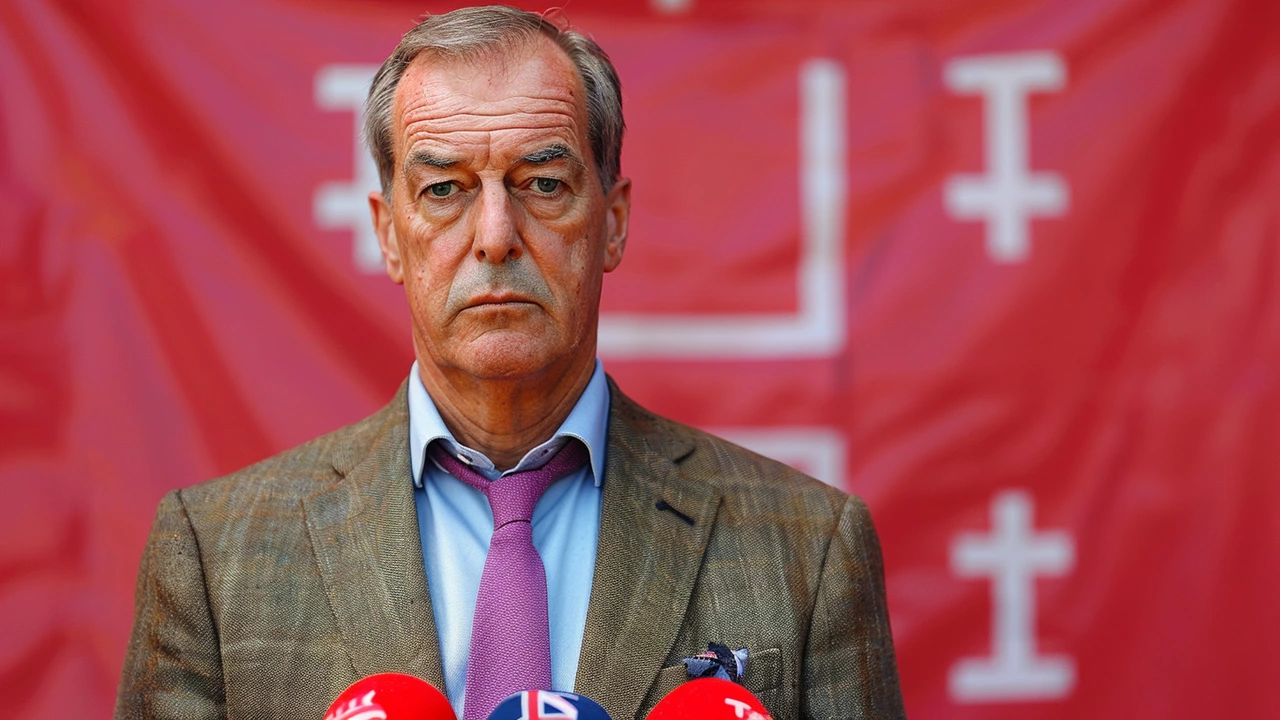Nigel Farage Unveils Ambitious Reform Party Election Campaign in Dover
Nigel Farage, a prominent figure in British politics, has officially launched the Reform Party's election campaign in Dover. The former UKIP leader made bold promises to 'save Britain' and introduced Howard Cox, the founder of FairFuelUK, as the party's candidate for Dover. Farage's passionate speech underscored his determination to shake up the current political landscape, which he criticized as ineffective and exploitative.
Farage's Criticism of Labour and Conservatives
Farage didn't hold back in his scathing remarks about the Labour and Conservative parties. He argued that both parties were equally culpable for the nation's woes. According to Farage, the current political establishment has failed to stand up to foreign powers, particularly, he claimed, allowing French authorities to exploit the UK. He painted a stark picture of a Britain that has been let down by the very parties meant to serve it.
Furthermore, Farage was unapologetic about his use of potentially offensive language, insisting that blunt honesty was necessary to convey the gravity of the situation facing the country. This rhetoric has been a hallmark of Farage's political career, one that resonates with a certain segment of the British electorate who feel disillusioned with traditional politics.
Introducing Howard Cox
The centerpiece of the event was the introduction of Howard Cox as the Reform Party's candidate for Dover. Cox, known for his vocal opposition to policies such as the Ultra Low Emission Zone (ULEZ), 20mph speed limits, Low Traffic Neighbourhoods (LTNs), extensive cycle lanes, and speed bumps, represents a choice for voters seeking an alternative to the status quo. His campaign promises to be characterized by his long-standing advocacy for motorist rights and fuel fairness, issues that he contends have been neglected by the mainstream parties.
Reform Party's Six-Year Plan
In his speech, Farage outlined a six-year plan for the Reform Party. Though he provided few concrete details, the overarching theme was a promise of significant change. Farage's ambition is to position the Reform Party as a credible alternative to both Labour and Conservative parties, offering solutions that he believes are more in line with the will of the British people.
This plan, according to Farage, will address a wide array of issues—ranging from immigration and public spending to the UK's relationship with the EU. By presenting a robust and comprehensive strategy, the Reform Party aims to attract voters who are frustrated with the lack of genuine choices in the current political arena.
Projection of a Labour Victory
Farage also made a stark prediction about the outcome of the upcoming general election. He suggested that Labour would likely emerge victorious, citing the significant losses that he anticipates for the Conservatives, particularly in the Red Wall seats—areas that the Tories had captured from Labour in the 2019 election but have since seen growing discontent.
This forecast is not just a critique of the Conservative campaign but also a calculated move to galvanize voters who might be on the fence. By predicting a Labour win, Farage is positioning the Reform Party as the future opposition, ready to step in where he believes the Conservatives are failing.
Comments on Prime Minister Rishi Sunak
Another significant element of Farage's speech was his commentary on Prime Minister Rishi Sunak. Farage claimed that Sunak's decision to call the general election was driven by the failure of his Rwanda policy, a controversial plan aimed at addressing migrant crossings. According to Farage, this policy failure is emblematic of the government's broader inefficacies.
Farage argues that the general election is an opportunity for voters to signal their dissatisfaction with current leadership and governance. This narrative is designed to appeal to voters who feel neglected and are seeking substantial change.
Uncertainty in Kent
As for the Reform Party's prospects in Kent, Farage remained somewhat ambiguous. While expressing confidence in the party's vision and mission, he stopped short of making specific predictions about electoral outcomes in the region. This cautious optimism is perhaps a strategic move, aiming to build momentum and manage expectations as the campaign progresses.
The Reform Party faces an uphill battle in Kent, a region with entrenched political loyalties. However, by fielding candidates like Howard Cox, who is well-known for his advocacy and activism, the party hopes to make inroads with voters who are disillusioned with the current political offerings.
Howard Cox's Stance
Howard Cox himself added to the conversation, reiterating his opposition to policies such as ULEZ and 20mph speed zones, which he argues impose unnecessary burdens on motorists and do little to address underlying issues. Cox's platform is built on the premise that common-sense policies should prevail, especially concerning transportation and environmental regulations.
Cox's candidacy is seen as a critical element of the Reform Party's broader strategy to present itself as a viable alternative. His focus on practical, everyday issues aims to resonate with voters who feel that their concerns have been overlooked by the mainstream parties.
Nigel Farage's launch of the Reform Party's election campaign in Dover marks a significant moment in the lead-up to the general election. With bold promises, sharp criticisms of the current political establishment, and the introduction of candidates like Howard Cox, the Reform Party is aiming to disrupt the status quo. Whether this strategy will translate into electoral success remains to be seen, but it undeniably adds an interesting dynamic to the political landscape in the UK.
